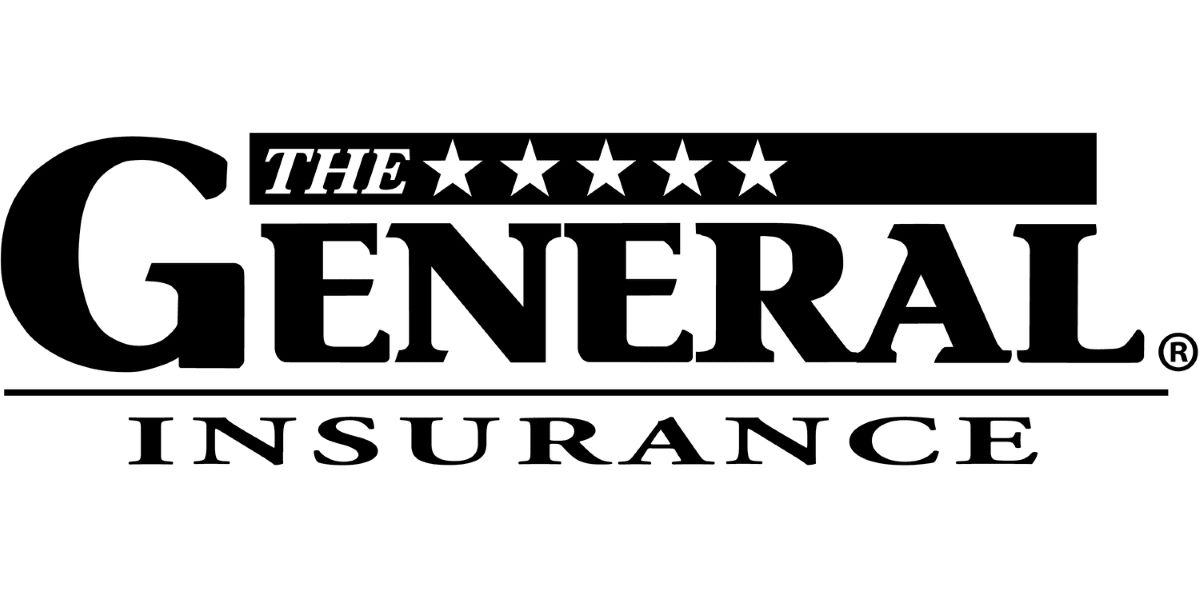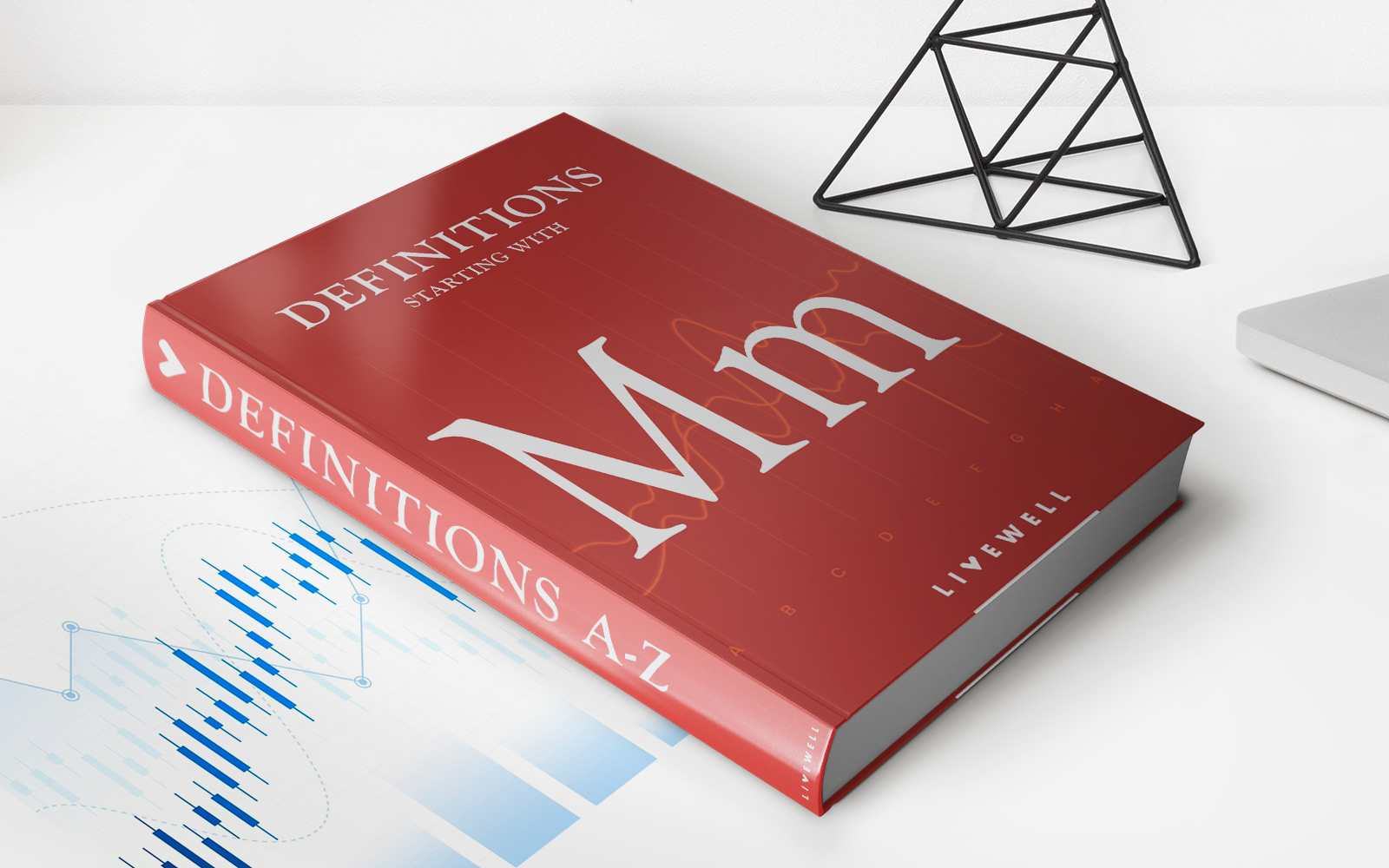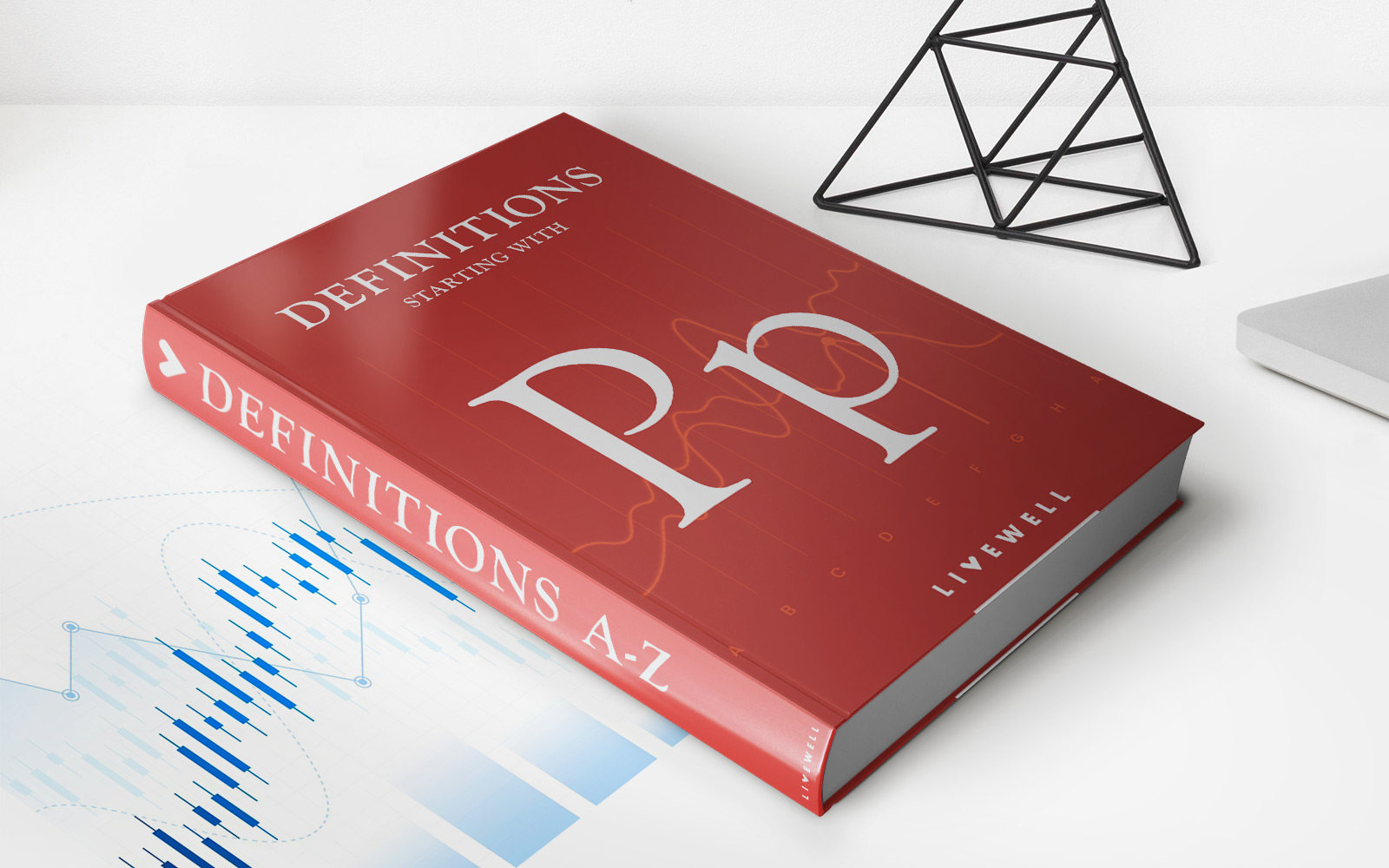Home>Finance>Who Are The Owners Of A Mutual Insurance Company?


Finance
Who Are The Owners Of A Mutual Insurance Company?
Published: November 20, 2023
Discover the owners of mutual insurance companies in the finance industry. Learn about the individuals or groups behind these organizations and their roles in managing risks and providing financial security.
(Many of the links in this article redirect to a specific reviewed product. Your purchase of these products through affiliate links helps to generate commission for LiveWell, at no extra cost. Learn more)
Table of Contents
Introduction
When it comes to insurance, you may wonder who exactly owns the companies that provide coverage. In the case of a mutual insurance company, the answer is quite unique compared to other types of insurance providers. Mutual insurance companies are distinct in their ownership structure, as they are owned by their policyholders. This means that the individuals who purchase insurance policies from a mutual insurance company become not only customers but also owners. This unique ownership model adds an interesting dynamic to the insurance industry and has several implications for the operation and governance of these companies.
In this article, we will delve into the ownership structure of a mutual insurance company, exploring who the owners are, how they are involved in decision-making processes, and why this ownership structure exists. We will also discuss the role of the board of directors, management, employees, and agents in the functioning of a mutual insurance company. Additionally, we will touch on the regulations and oversight that govern these companies and the benefits and challenges associated with mutual insurance ownership.
By the end of this article, you will have a comprehensive understanding of the ownership dynamics of a mutual insurance company and how this unique structure impacts its operations and the relationship between the company and its policyholders.
What is a Mutual Insurance Company?
A mutual insurance company is a type of insurance organization that is owned by its policyholders. Unlike other types of insurance companies, such as stock insurance companies, mutual insurance companies do not have shareholders or investors. Instead, the policyholders are the owners of the company, and their interests are at the forefront of the company’s operations and decision-making processes.
The primary purpose of a mutual insurance company is to provide insurance coverage to its policyholders, who pay premiums in exchange for protection against potential losses or damages. The company pools the premiums from all the policyholders and uses the funds to pay for claims, operational expenses, and potential dividends to policyholders.
One of the distinguishing features of a mutual insurance company is its policyholder dividends. These dividends are essentially a return of excess premiums to policyholders when the company’s financial performance exceeds its expected claims and expenses. Policyholders may receive these dividends in the form of cash, reduced premiums, or additional coverage. This is one of the advantages of being a policyholder and owner of a mutual insurance company.
It is important to note that mutual insurance companies can offer various types of insurance coverage, including life insurance, property and casualty insurance, health insurance, and more. The ownership structure remains the same regardless of the specific type of insurance provided.
Mutual insurance companies often have a specific mission or purpose beyond their financial goals. They are guided by the principle of mutuality, which means that they prioritize the well-being and satisfaction of their policyholders over profit maximization. This can lead to a stronger emphasis on customer service, personalized coverage options, and a commitment to the long-term interests of policyholders.
Overall, mutual insurance companies operate with a unique ownership structure that aligns the interests of policyholders with the success and sustainability of the company. This fosters a sense of ownership and engagement among policyholders, creating a symbiotic relationship between the company and its customers.
Ownership Structure of a Mutual Insurance Company
The ownership structure of a mutual insurance company sets it apart from other types of insurance providers. In a mutual insurance company, the owners are the policyholders themselves. When individuals purchase an insurance policy from a mutual insurance company, they not only become customers but also stakeholders in the company’s success.
Unlike traditional corporations where shareholders hold stocks and have voting rights, mutual insurance companies distribute ownership shares in the form of policyholder rights. These rights give policyholders a say in important decisions that affect the company. The ownership structure ensures that the company’s focus is on serving the best interests of its policyholders, rather than maximizing profits for external shareholders.
Policyholders’ rights in a mutual insurance company can vary. In some cases, policyholders have voting rights, allowing them to participate in the election of the company’s board of directors. They may also have the right to attend and vote on important matters at annual general meetings.
Furthermore, policyholders may have the opportunity to serve on the board of directors themselves. This allows policyholders to have a direct impact on the strategic direction of the company, ensuring that their voices are heard and their interests are represented.
It’s important to note that while policyholders are owners of the company, they do not gain financial equity in the traditional sense. Unlike shareholders who can sell their shares for a profit, policyholders of a mutual insurance company cannot sell their ownership rights. Instead, their ownership is tied to their status as policyholders, and they benefit primarily through dividends and the overall stability and performance of the company.
The ownership structure of a mutual insurance company creates a unique dynamic, as policyholders are both customers and owners. This can foster a sense of loyalty and trust between the company and its policyholders, as it aligns their interests directly. Moreover, policyholders have a vested interest in the financial well-being of the company, ensuring that it remains financially stable and capable of meeting its obligations to policyholders.
Now that we have covered the ownership structure of a mutual insurance company, let’s explore the role of policyholders as owners in more detail.
Policyholders as Owners
In a mutual insurance company, policyholders hold a unique position as both customers and owners. This ownership structure gives policyholders a level of influence and control over the operations of the company, ensuring that their needs and interests are prioritized.
As owners, policyholders have certain rights within the mutual insurance company. These rights may include the ability to vote and participate in important decisions, such as the election of board members or the approval of changes to the company’s bylaws. Policyholders may also have the right to attend annual general meetings, where they can voice their opinions and concerns regarding the company’s performance and direction.
Policyholders also have a vital role in shaping the company’s policies and guidelines. As owners, they have the opportunity to provide feedback and input on various aspects of the insurance coverage, such as premiums, coverage options, and claim settlement processes. This engagement ensures that the company remains responsive to the evolving needs of its policyholders.
Another crucial aspect of policyholders as owners is their involvement in the distribution of dividends. When a mutual insurance company performs well financially and generates excess funds, these funds can be used to issue dividends to policyholders. Dividends can be distributed in various forms, including cash payments, reductions in future premium payments, or additional coverage benefits. This is a unique benefit of owning a policy with a mutual insurance company, as policyholders directly share in the company’s success.
The sense of ownership that policyholders have in a mutual insurance company can foster a strong bond between them and the company. Policyholders are not just passive customers; they have a stake in the company’s success and longevity. This can lead to a deep sense of loyalty and trust in the company, as policyholders understand that their best interests are considered in every decision made.
Furthermore, policyholders as owners contribute to the overall stability and financial strength of the mutual insurance company. By actively participating in the company’s governance and decision-making processes, policyholders help ensure that the company remains well-managed and able to fulfill its obligations to all policyholders.
Overall, policyholders as owners provide a unique perspective and influence in the operations of a mutual insurance company. Their engagement, feedback, and loyalty are essential in maintaining a successful and customer-centric insurance organization.
Board of Directors
The board of directors plays a crucial role in the governance and decision-making process of a mutual insurance company. Comprised of individuals elected or appointed by the policyholders, the board represents the interests of the policyholders and ensures effective oversight of the company’s operations.
The primary responsibility of the board is to provide strategic direction and guidance to the company. This includes setting the company’s objectives, approving policies and procedures, and making critical decisions that impact the overall direction and success of the company.
One of the unique aspects of the board of directors in a mutual insurance company is its composition. In many cases, the majority of the board members are policyholders themselves, reflecting the ownership structure of the company. This ensures that policyholders have a direct say in the decision-making process and are represented at the highest level of management.
The board of directors is typically comprised of individuals with diverse backgrounds and expertise, bringing a range of skills and knowledge to the table. This includes professionals from various industries such as finance, law, risk management, and insurance. The board’s composition ensures that the company benefits from a well-rounded perspective and a balance of expertise.
In addition to providing strategic guidance, the board is responsible for overseeing the company’s financial performance and regulatory compliance. They review financial reports, monitor the company’s risk exposure, and ensure compliance with relevant laws and regulations. This oversight ensures that the company operates in a responsible and ethical manner, safeguarding the interests of the policyholders.
The board of directors also plays a role in the selection and evaluation of senior executives. They hire and evaluate the performance of the company’s management team, ensuring that they have the necessary skills and expertise to effectively run the organization. This oversight ensures that the company remains well-managed and capable of achieving its goals.
Another important function of the board is to communicate and engage with the policyholders. They serve as a bridge between the policyholders and the management team, relaying information, and seeking feedback on key issues. This communication helps maintain transparency and fosters a sense of trust and collaboration between the company and its owners.
In summary, the board of directors plays a vital role in the governance and oversight of a mutual insurance company. They provide strategic direction, ensure financial stability, and represent the interests of the policyholders. Their diverse expertise and engagement with policyholders contribute to the overall success and sustainability of the company.
Management and Employees
In a mutual insurance company, the management team and employees are responsible for the day-to-day operations and execution of the company’s strategic goals. They play a critical role in ensuring the smooth functioning of the organization and delivering high-quality services to policyholders.
The management team, led by the CEO or President, is responsible for setting and implementing the company’s strategy, overseeing operations, and ensuring adherence to regulatory requirements. They make key decisions regarding underwriting policies, product development, and overall risk management.
Employees across various departments, such as underwriting, claims, customer service, and finance, contribute to the efficient operation of a mutual insurance company. They work diligently to provide excellent customer service, process claims promptly and accurately, and manage policyholder inquiries and concerns.
One of the distinguishing aspects of a mutual insurance company is the alignment of the management team and employees with policyholder interests. As policyholders are the owners of the company, the management team has a responsibility to act in their best interests, providing fair and competitive insurance products and services.
The management team and employees also play a crucial role in maintaining the financial health and stability of the mutual insurance company. This includes managing risk, ensuring adequate reserves are in place to cover potential claims, and managing investments to generate returns that can support future obligations to policyholders.
Furthermore, the management team and employees of a mutual insurance company are responsible for fostering a customer-centric culture. They strive to understand and meet the unique needs of policyholders, offering personalized coverage options, efficient claims handling, and responsive customer support. This dedication to customer satisfaction contributes to the long-term success and loyalty of policyholders.
Training and professional development programs are essential in ensuring that the management team and employees have the necessary knowledge and skills to perform their roles effectively. Ongoing training not only enhances their expertise but also keeps them up-to-date with industry trends, regulatory changes, and emerging risks.
Overall, the management team and employees play a critical role in the success of a mutual insurance company. Their dedication, expertise, and commitment to serving the best interests of the policyholders contribute to the company’s reputation, financial stability, and long-term sustainability.
Role of Agents and Brokers
In the insurance industry, agents and brokers play a vital role in connecting policyholders with the right insurance coverage from mutual insurance companies. They act as intermediaries between the company and the policyholders, providing guidance, expertise, and personalized service throughout the insurance purchasing process.
Agents are individuals who represent a specific mutual insurance company and are authorized to sell its insurance products directly to consumers. They are knowledgeable about the company’s policies, coverage options, and underwriting guidelines. Agents work closely with policyholders to understand their specific needs and recommend suitable insurance solutions.
Brokers, on the other hand, are independent professionals who work with multiple insurance companies, including mutual insurance companies. They are not tied to any particular company but instead guide policyholders by offering a range of insurance options from different providers. Brokers assess policyholders’ needs, gather quotes from various insurers, and help them choose suitable coverage based on their requirements and budget.
Both agents and brokers serve as trusted advisors to policyholders, providing expertise and assistance throughout the insurance buying process. They have a thorough understanding of the insurance market, industry trends, and regulatory requirements, allowing them to offer valuable insights and recommendations to policyholders.
Agents and brokers play an essential role in ensuring that policyholders are well-informed about the coverage options available to them. They explain the terms and conditions of insurance policies, provide guidance on policy features and exclusions, and help policyholders make informed decisions that align with their needs and preferences.
Beyond policy selection, agents and brokers also assist policyholders in filing claims and managing the claims process. They act as advocates for policyholders, helping them navigate complex procedures, gather necessary documentation, and liaise with the mutual insurance company to ensure prompt and fair claims settlement.
The relationship between agents, brokers, and mutual insurance companies is mutually beneficial. Agents and brokers rely on the products and services offered by the mutual insurance company to provide coverage options to their clients. At the same time, mutual insurance companies benefit from the expertise and reach of agents and brokers, as they help expand the company’s customer base and provide personalized service to policyholders.
Overall, agents and brokers serve as valuable partners in the mutual insurance industry. Their role in guiding policyholders, offering expert advice, and facilitating the insurance process contributes to the success and growth of mutual insurance companies while ensuring the best interests of policyholders are met.
Regulation and Oversight
Like any insurance company, mutual insurance companies are subject to regulations and oversight to ensure fair practices, financial stability, and consumer protection. These regulations are put in place by government agencies or regulatory bodies to maintain a robust and trustworthy insurance industry.
Regulatory bodies, such as insurance departments or financial services authorities, monitor and supervise mutual insurance companies to ensure their compliance with laws and regulations. These bodies establish rules and standards that govern various aspects of a mutual insurance company’s operations, including licensing requirements, financial reporting, reserve adequacy, and consumer protections.
The regulatory framework aims to protect policyholders and maintain the financial stability of mutual insurance companies. It ensures that companies have sufficient capital reserves to fulfill their obligations to policyholders and operate in a fair and transparent manner.
In addition to government regulations, mutual insurance companies may also be affiliated with industry associations or organizations that provide additional oversight and guidance. These associations often have their own codes of conduct and ethical guidelines that member companies must adhere to.
Regulation and oversight not only protect policyholders but also promote competition and a level playing field among insurance companies. They aim to prevent unfair business practices, promote market stability, and foster consumer trust in the insurance industry.
Policyholders can have peace of mind knowing that mutual insurance companies are subject to rigorous oversight and regulation. They can trust that these companies are operating within legal and ethical boundaries and are held accountable for their actions.
In summary, regulation and oversight are crucial elements of the mutual insurance industry. They ensure that mutual insurance companies operate in a responsible and customer-centric manner, safeguarding the interests of policyholders and maintaining the integrity of the insurance market.
Benefits and Challenges of Mutual Insurance Ownership
Mutual insurance ownership offers several benefits and unique advantages for policyholders. However, it also comes with its own set of challenges. Let’s explore both sides:
Benefits of Mutual Insurance Ownership:
- Policyholder-centric approach: In a mutual insurance company, policyholders are also owners. This ownership structure encourages a customer-centric mindset where the company’s primary focus is on meeting the needs and expectations of its policyholders.
- Shared financial success: Mutual insurance companies have the potential to distribute dividends to their policyholders when the company performs well financially. This provides policyholders with a tangible benefit, as they directly share in the financial success of the company.
- Greater control and influence: Policyholders have the opportunity to participate in decision-making processes through voting rights and potential board representation. This gives policyholders a voice in shaping the strategic direction and policies of the company.
- Enhanced trust and loyalty: Mutual insurance ownership fosters a sense of trust and loyalty between the policyholders and the company. As owners, policyholders have a vested interest in the company’s success and are more likely to maintain long-term relationships.
- Policyholder protection: Mutual insurance companies prioritize the interests of their policyholders over external shareholders. This ensures that decisions are made with the policyholders’ well-being in mind, reducing the likelihood of actions that solely benefit shareholders.
Challenges of Mutual Insurance Ownership:
- Potential for conflicts of interest: Balancing the interests of policyholders with the financial stability and growth of the company can sometimes create conflicts of interest. The company must strike a balance between adequately compensating policyholders and maintaining financial sustainability.
- Limited access to capital: Unlike stock insurance companies, mutual insurance companies do not have access to equity markets to raise capital. This can limit their ability to fund growth initiatives or respond to unexpected financial challenges.
- Limited liquidity for policyholders: Policyholders’ ownership in a mutual insurance company is tied to their status as active policyholders. This means they cannot easily sell their ownership rights for immediate liquidity, unlike shareholders in a publicly traded company.
- Complex governance structure: The ownership structure of a mutual insurance company, with policyholders as owners and potentially serving on the board of directors, can add complexity to the governance and decision-making processes of the company.
- Less transparency: Compared to publicly traded companies, mutual insurance companies may have less transparency in terms of financial reporting and disclosure due to the absence of external shareholders.
Despite these challenges, the benefits of mutual insurance ownership, such as policyholder-centricity and shared financial success, often outweigh the drawbacks. With careful management and effective governance, mutual insurance companies can provide a unique and customer-focused approach to insurance coverage.
Conclusion
Mutual insurance companies stand out in the insurance industry for their unique ownership structure, with policyholders serving as the owners of the company. This ownership model fosters a customer-centric approach, aligning the interests of policyholders with the success and sustainability of the company.
The ownership structure of mutual insurance companies allows policyholders to have a say in the decision-making process. They have voting rights, the opportunity to serve on the board of directors, and receive dividends when the company performs well financially. This ownership model creates a stronger sense of trust, loyalty, and engagement between the company and its policyholders.
While mutual insurance ownership has its benefits, such as a policyholder-centric approach and shared financial success, there are challenges to consider. These challenges include potential conflicts of interest, limited access to capital, and a complex governance structure. However, with effective management and governance, mutual insurance companies can successfully navigate these challenges.
Overall, the ownership structure of mutual insurance companies provides policyholders with a unique and rewarding experience. Their involvement in the decision-making process ensures that their interests are prioritized, creating stronger relationships and greater trust between the company and its policyholders.
In conclusion, mutual insurance ownership offers a customer-centric approach to insurance, where policyholders not only benefit from coverage but also have a stake in the success of the company. Mutual insurance companies play a vital role in the insurance industry, providing policyholders with a sense of ownership, financial protection, and long-term stability.














